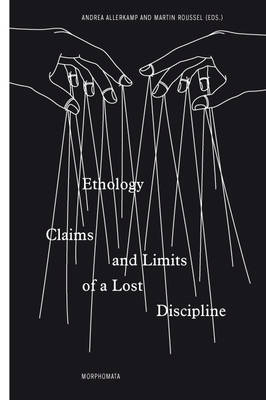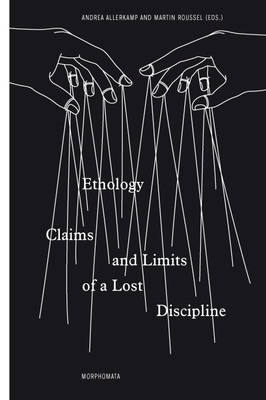
Bedankt voor het vertrouwen het afgelopen jaar! Om jou te bedanken bieden we GRATIS verzending (in België) aan op alles gedurende de hele maand januari.
- Afhalen na 1 uur in een winkel met voorraad
- In januari gratis thuislevering in België
- Ruim aanbod met 7 miljoen producten
Bedankt voor het vertrouwen het afgelopen jaar! Om jou te bedanken bieden we GRATIS verzending (in België) aan op alles gedurende de hele maand januari.
- Afhalen na 1 uur in een winkel met voorraad
- In januari gratis thuislevering in België
- Ruim aanbod met 7 miljoen producten
Zoeken
€ 118,95
+ 237 punten
Omschrijving
When the Werner Reimers Foundation organized a colloquium on Human Ethology in 1977, it was about Claims and Limits of a New Discipline as a bridge between biology and the social sciences and humanities. As a lost discipline, however, the interdisciplinary approach to ethology only takes shape in a dispersed dispositif. This is the framing argument, which derives from the nucleus of ethology, namely that the starting point of all knowledge is the body in its possibilities of movement in time and space to affect and be affected. In their essays (English or German), the contributors to this collection have worked through the heterogeneity of ethological thought - from Spinoza to Jakob von Uexküll, Gregory Bateson, Gilles Deleuze and Félix Guattari, Philippe Descola, or Isabelle Stengers - and practice - as, for example in the works of Virginia Woolf or Marcel Beyer - and have taken it as an opportunity to relocate ethology,
I. as an "Immanent Ecology," with essays by Kerstin Andermann, Hanjo Berressem, and Verena Andermatt Conley,
II. in the discussion of "Anthropological Contrasts," with essays by Marc Rölli, Mirjam Schaub, and Stefan Rieger, and
III. in "Ethological Interferences and Practices," with essays by Stephan Zandt, Anthony Uhlmann, and Adrian Robanus.
A commentary by Sophia Gräfe concludes the volume.
I. as an "Immanent Ecology," with essays by Kerstin Andermann, Hanjo Berressem, and Verena Andermatt Conley,
II. in the discussion of "Anthropological Contrasts," with essays by Marc Rölli, Mirjam Schaub, and Stefan Rieger, and
III. in "Ethological Interferences and Practices," with essays by Stephan Zandt, Anthony Uhlmann, and Adrian Robanus.
A commentary by Sophia Gräfe concludes the volume.
Specificaties
Betrokkenen
- Uitgeverij:
Inhoud
- Aantal bladzijden:
- 284
- Taal:
- Engels
- Reeks:
- Reeksnummer:
- nr. 54
Eigenschappen
- Productcode (EAN):
- 9783770566532
- Verschijningsdatum:
- 4/06/2021
- Uitvoering:
- Paperback
- Formaat:
- Trade paperback (VS)
- Afmetingen:
- 155 mm x 235 mm
- Gewicht:
- 521 g

Alleen bij Standaard Boekhandel
+ 237 punten op je klantenkaart van Standaard Boekhandel
Beoordelingen
We publiceren alleen reviews die voldoen aan de voorwaarden voor reviews. Bekijk onze voorwaarden voor reviews.








